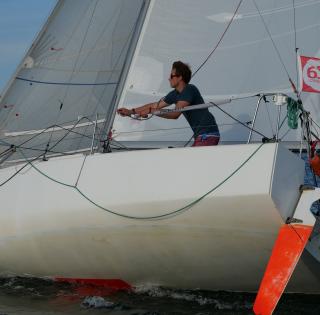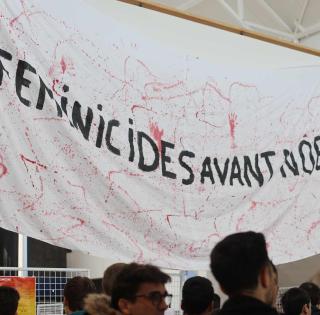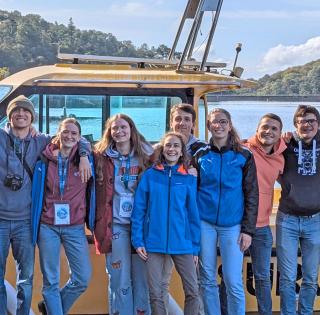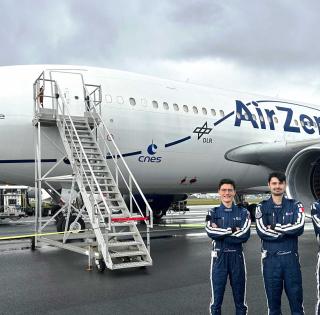

Alexandre F. shares his experience with us. He won the Finistère & Côtes d'Armor challenge with Téophane B. and François S.
What did this competition involve?
"Break The Code" is a student challenge involving a series of exercises on different themes. In teams of 3, the students must work out a code, a password called a "flag" which will earn them points. The first team to capture the flag gets a bonus. When the time’s up, the number of points won by each team is counted and a ranking is produced. It’s what’s known as a Jeopardy-style "Capture the flag".
The challenges cover various fields encountered in cyberdefense: cryptography (e.g.: an encrypted code with an altered T9 keyboard), steganography (e.g.: a PDF converted into musical notes), or logic exercises (e.g.: given an hour, count the number of seconds since the last time all the hands on the clock were lined up).
The more difficult the challenge, the more points up for grabs. But coming up with a wrong answer gets points taken away, so you have to weigh up whether you send what you think is the right flag or take more time to check that this is correct.
What was new about the 2020 “break the code” season?
The main innovation this year was that the competition was organized remotely. Instead of everyone meeting up on the same campus, in the same room to compete, everything took place using Microsoft Teams, with a session acting as auditorium and a session per team to talk about the results before sending them.
There were also a few changes in the competition, not least the creation of two group rankings by Sopra Steria. The first for Brittany and the second in the form of a "Battle of the Départements". We were in the competition with other schools from Finistère and Côtes d'Armor. Finally, there were fewer exercises (down from 10 to 8), but the standards were much higher.
Did the fact that you took part in (and won!) the 2019 competition help you? Did you encounter any difficulties?
The organizers put us in the spotlight at the start of the competition, as last year we had won in the Finistère ranking and also came first in the Brittany ranking.
We didn’t want to lose the trophy that we were staking by playing again this year. But it wasn’t easy. We particularly found it difficult because the competition was held remotely. Everyone was alone in their bedroom, communication within the team wasn’t as good as last year and stress management proved more complicated!
Unfortunately that showed in the final ranking: 6th overall, but 1st place in the Finistère/Côtes d'Armor ranking all the same!
The team’s name is also the name of the cyber club (ENS7UXN3T), are you still keeping this going remotely?
The second lockdown and most of all the arrival of 2nd year projects made it tricky to continue the lessons remotely. Cyber can look like a set of riddles that need solving, but if you don’t know where to begin you can spend days on it.
The aim of the Cyber Club (ENS7UXN3T) is not to give lectures but to learn by doing. Luckily, all of the resources you need can be found online (especially on the website Root Me) and the lessons we gave before the second lockdown were enough to enable the students to continue learning at their own pace at home. Once we can all return to campus, I think we’ll concentrate on these exercises and on the tools that will enable students to learn as they go, on their own!
Have these experiences made you want to pursue your own career in the cyber field? What are your professional aspirations?
I enrolled at ENSTA Bretagne thinking I would major in pyrotechnics or robotics. Now, after encounters I’ve had and after participating in the "Break the Code" challenge, I’ve ended up choosing the Security and Digital Systems specialization. Before taking part in this competition, I didn’t know much about the cyberdefense sector or its culture. But now it’s a subject I find fascinating, especially because it is changing all the time. I’m now convinced that it’s a sector I’d like to work in, to be able to make access to technology safer for non-initiates.
As an IETA military engineering student, at the Defense, Procurement and Technology Agency (DGA) I’m planning to focus more particularly on technical expertise in Cybersecurity. There’s no doubt that it’s these experiences (the various competitions) and above all encounters with enthusiasts that have inspired me to pursue this fulfilling path.













